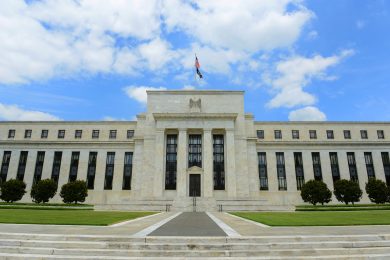
Is Japan’s economic rebound here to stay or just a temporary surge?
- In the second quarter of 2024, Japan's economy grew by 3.1%.
- The growth was largely fueled by a strong rise in private consumption.
- Despite positive economic indicators, Japan's outlook is clouded by political uncertainty and external risks.
Japan’s economy is making headlines with a remarkable rebound, raising questions about whether this growth marks the beginning of a sustained recovery or just a temporary surge.
In the second quarter of 2024, Japan’s economy grew by an impressive annualized 3.1%, driven by a resurgence in private consumption and a significant boost from tourism.
This growth has caught the attention of global investors, especially in the wake of the Bank of Japan’s (BoJ) unexpected policy shift in July.
However, while the economic outlook appears brighter, looming political uncertainties and global risks pose significant challenges.
Japan’s economic performance in Q2 2024
Copy link to sectionJapan’s economic performance in Q2 2024 surpassed expectations, with the country posting a 3.1% annualized growth rate.
This figure significantly exceeded the median market forecast of 2.1%, signaling a robust recovery from the 2.3% contraction experienced in the first quarter of the year.
The growth was largely fueled by a strong rise in private consumption, which accounts for more than half of Japan’s economic output.
Private consumption, which had been stagnant for five consecutive quarters, finally showed signs of life, increasing by 1.0% in the second quarter—double the expected 0.5% rise.
This turnaround in consumer spending is a crucial development for an economy that has long struggled with weak domestic demand.
Several factors contributed to this resurgence, including wage increases following strong spring negotiations and the easing of pandemic-related restrictions.
Tourism also played a pivotal role in Japan’s economic revival.
With global travel restrictions lifted, the influx of tourists has provided a significant boost to retail sales.
The government projects that tourist spending could reach 8 trillion yen (approximately $54.74 billion) by the end of 2024, underscoring the importance of this sector to Japan’s overall economic health.
This is particularly vital for a nation facing long-term demographic challenges, including an aging population and a shrinking workforce.

Source: LSEG, Japan’s Cabinet Office
The Bank of Japan’s policy shift: A new era?
Copy link to sectionIn a move that surprised many, the Bank of Japan raised interest rates in July 2024, signaling a shift away from its long-standing ultra-accommodative monetary policy.
For years, the BoJ maintained near-zero interest rates to combat deflation and stimulate economic growth.
However, the current economic environment, marked by rising inflation and a more optimistic economic outlook, has prompted the central bank to begin normalizing its policy.
The decision to raise rates has disrupted the “yen carry trade,” a popular investment strategy where investors borrow yen at low rates to invest in higher-yielding assets abroad.
This has led to a stronger yen, which, while beneficial for controlling inflation, could pose challenges for Japanese exporters by making their goods more expensive in international markets.
The BoJ’s policy shift also sets Japan apart from other major central banks, such as the US Federal Reserve, which have either paused or are considering easing their monetary policies.
The BoJ’s actions reflect its belief that Japan’s economic recovery is strong enough to withstand tighter monetary conditions and that inflation will remain on target, paving the way for further rate hikes.
How good is Japan’s economic outlook?
Copy link to sectionDespite the positive economic indicators, Japan’s outlook is clouded by political uncertainty and external risks.
Prime Minister Fumio Kishida’s recent announcement that he will resign next month has added a layer of unpredictability to the country’s political landscape.
Kishida’s resignation comes in the wake of several political scandals and growing public dissatisfaction over rising living costs.
His departure could lead to a period of political instability, particularly if his successor calls for a snap election in the fall.
Such instability could delay the BoJ’s plans for additional rate hikes, adding to the economic uncertainty.
Externally, Japan faces the risk of a potential US recession, which could have far-reaching implications for the global economy.
Market volatility has already increased as investors weigh the possibility of economic downturns in major economies.
A US recession could lead to a flight to safety, with investors pulling out of riskier assets, including Japanese stocks, in favor of safe-haven investments like US Treasuries.
Is it a good time to invest in Japan?
Copy link to sectionJapan’s stronger-than-expected GDP growth and the BoJ’s move toward tighter monetary policy present a mixed bag for investors.
On one hand, the robust economic data suggests that Japan’s domestic sectors, such as retail and tourism, may offer attractive investment opportunities.
The continued recovery in private consumption and the tourism boom are likely to benefit companies in these sectors, potentially leading to further gains in Japanese equities.
Indeed, the positive Q2 GDP data has already had a favorable impact on the stock market, with Japanese stocks rising in response.
The broader Topix index gained 1.2%, with sectors like oil and coal surging by 4.5%, and banks and securities firms seeing gains of around 4%. This market reaction reflects renewed investor confidence in Japan’s economic prospects.
However, the BoJ’s policy shift and the resulting stronger yen could pressure Japanese exporters by making their products less competitive abroad.
This could lead to lower profits for companies heavily reliant on export markets. Additionally, the broader global economic environment remains fraught with risks.
A US recession, in particular, could dampen the positive effects of Japan’s economic recovery, as it could trigger a sell-off in riskier assets, including Japanese stocks.
While there are opportunities for investors in Japan’s domestic sectors, the broader economic landscape suggests that careful consideration is needed before making any investment decisions.
As Japan navigates this complex economic and political terrain, the coming months will be crucial in determining whether this rebound is the start of a sustained recovery or merely a temporary surge.
More industry news







